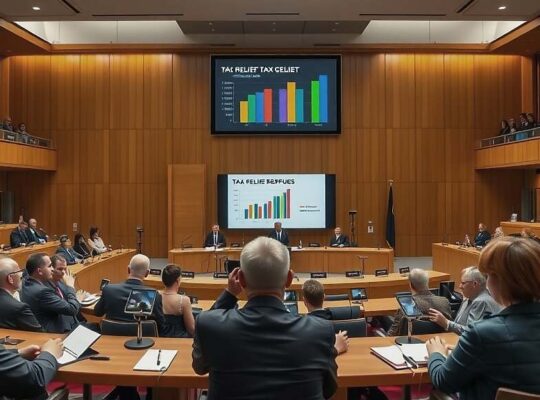The political landscape in Lower Saxony is witnessing heightened tensions surrounding the government’s proposed pension reform package, with accusations of inconsistency and a concerning erosion of consensus-building within the ruling coalition. Olaf Lies, the Minister-President of Lower Saxony, has directly challenged the Christian Democratic Union (CDU) to uphold their commitments and ensure the package’s passage, signaling a deepening divide.
Lies’s remarks, delivered to the Redaktionsnetzwerk Deutschland, underscore a palpable frustration regarding the CDU’s recent wavering. He emphasized the principle of reciprocity, arguing that “discipline applies to both sides” and that the CDU must honor the agreements solidified during the initial coalition negotiations. His statement explicitly cautioned against allowing dissenting voices to perpetually obstruct progress, asserting that a functioning democracy relies on achieving consensus within a majority, not constant deadlock.
The controversy stems from resistance within the CDU’s youth wing, which has threatened to withhold support for the package, primarily due to dissatisfaction with the wording used to guarantee the preservation of the pension level. This internal dissent mirrors broader anxieties about the coalition’s ability to govern effectively and maintain unity on critical policy issues.
Adding complexity to the situation is the inclusion of provisions championed by the Christian Social Union (CSU), notably the expansion of the “mothers’ pension” – a politically sensitive measure designed to address historical inequalities. Furthermore, the package aims to simplify the process for individuals wishing to continue working beyond the traditional retirement age.
Political analysts are interpreting Lies’s sharp rebuke as a strategic move to pressure the CDU into line, highlighting a potential crisis of confidence within the government. While the coalition ostensibly agreed to compromise during negotiations, the current impasse raises critical questions about the long-term stability of the alliance and its commitment to fulfilling the promises outlined in its governing agreement. The outcome of this debate will not only determine the shape of Germany’s pension system but also serve as a crucial test of the coalition’s ability to navigate complex political disagreements and maintain a unified front.












